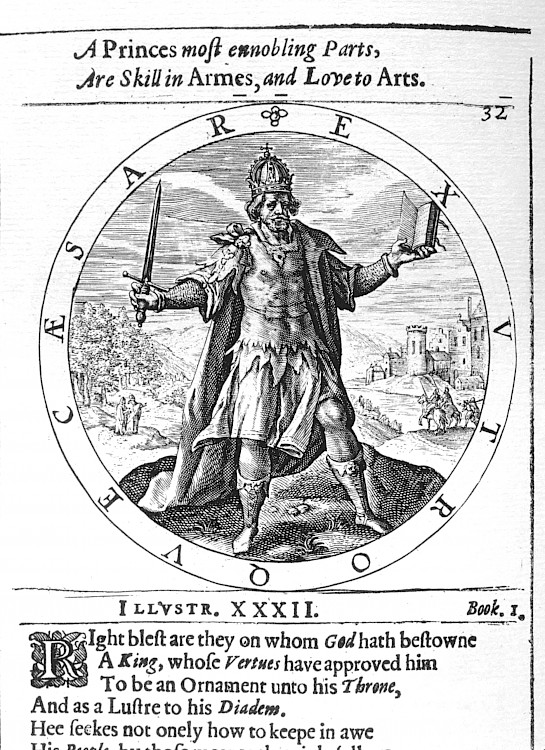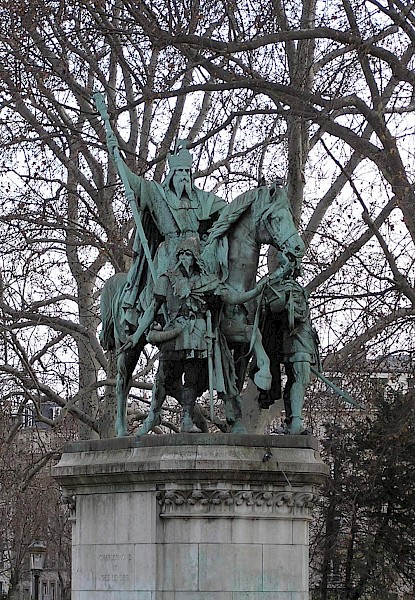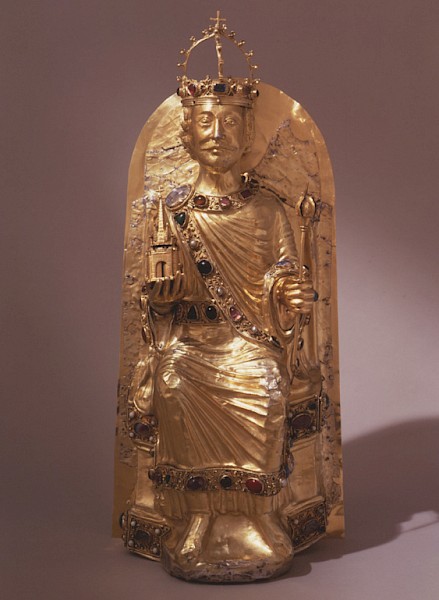The Living Writing and its Descendants : Is a Portrait of the State Still Possible?
The State, the State… we must return to basics, we must consider the power of this empty word, stripped of its totemic humanity and its historical contents by generations of experts who forged the modernist West : to construct the standard institutional equipment, exportable to the whole planet.
Half a century after the big post-colonial upheaval in the wake of World War II, the entire world is girdled with States, many of which are mere puppet figureheads supposed to rule over rotting societies, at the cost of insuperable and dreadful conflicts. A United Nations observer of a few of those dramas during the era of Third-Worldism, I drew a definite lesson : as our ways of adressing the state form were turning into fossilized ways of thought, so I had to retreat again into erudition in order to try to grasp the destiny at stake in the question of « the State », this world-renowned signifier, the progeny born from the peregrinations of the Latin word « status », manipulated to such a degree that it is now inscribed in the organizational jargon promoted into universal newspeak.
I invented an apologue to highlight the intellectual poverty that today substitutes managerial calculation for reflection on power. Making use of a character from the novelist William Faulkner, I depicted reality by replacing the term ‘moral’ by that of ‘State’ in the following text:
« …That innocence that believed that the ingredients of the State were like the ingredients of pie or cake and once you had measured them and balanced them and mixed them and put them into the oven it was all finished and nothing but pie or cake could come out. »
My interpolation sounds right. Add the following ingredients : economics and finance, demographics, religious psychology, military strategy ; throw in some perfume of culture ; stir vigorously and crack the whip of democracy before you place it all in the oven of sociology. That should give you a State, the icing on the cake sold by the lobbyists of political marketing, conservative or progressive, take your pick.
The study of the linguistic balances of humanity, as testimonies of the inner life of societies, reveals the nature of the standardization process, the political cuisine and its recipe : an international action that bulldozes competing ideologies and flattens the terrain, which is to say does its best to eradicate all traditions so as to set up the State, whatever the model.
The « voyage around the world of concepts » I proposed to a group of first rate scholars – tribute should here be paid to them - showed the complexity of the semantic sediments which international conformism believes as permanently erased from the conscience of populations bulldozed by modernization. A nation (in the Latin sense of natus, i.e. that which, being born, assumes a genealogy) is also the conservator of ancestral writings which, behind the social scenes, maintain traces of representations of power invisible to positivism, dangeroulsly vested in by the West. Some examples :
The chinese language : after the ancient saying « son of heaven », evolution produced the theme of a national Family whose subjects obediently rally behind a paternalistic and maternalistic power.
In India, the hindi : behind the term referring to the modern Constitution and its great servants, lies a long lexical history of rituals injunctions designed to protect the order of the world.
In Africa, Burkina Faso : the idea of power involves the notion of land, of soil, and then extends to the idea of country, village, and then again to that of a stretch under the jurisdiction of a « Master of the earth » - the capital Earth invested with a mystical force upon which all men depend.
Now the Persian-Arabic : a traditional polysemic term first had the meaning of success, of prosperity, evoking at the same time the transient, cyclical nature of such a joy. Then emerges the meaning of a dominant power, of political success granted by the divine Providence.
Let us return to our own tradition : have we ever thought that the state form suddenly appeared in Europe just like a ready for use institutional object ? As though it fell as lightening from Christian heaven, perhaps ? The strange idea of a state which would exist outside of any tradition never crossed the European mind. It was necessary to await the maturation process of the idea of Revolution introduced by medieval authors – « reshaping the entire world » (reformatio totius orbis) –, until a political technocracy finally came into the picture. The fact remains that the very notion of exporting an institutional invention, forged in a specific historical time and place, is actually an issue of conquest, which in the best of cases of ends up with unexpected blending…
So it is the question of us as Westerners that arises. Which hidden path finally led us, intellectually, to entertain the idea that the planet, while containing those who are not us, can be reorganized, modenized, converted, as though it had become, all of a sudden, tabula rasa ?
An endeavour to obliterate. I meant to clear that history. What stares us in the face is a boundless belief in our methods of exploring time. « To govern time without understanding the past” : I want to repeat this phrase by Walter Benjamin to the foolish pedagogues who for decades have been ruling the Ministry of under-education in France !
A linear historicity, viewed as a successive turning of pages, has produced the idea of something like a universal temporality, a sort of a common yardstick by which the direction of a pre-planned global history can be assessed : a greater or lesser degree of convergence towards an end-point, the Omega of the way societies should develop, an absolute and total Modernity, undermining the genalogical statement that is the bearer of civilizations. The prophecy which would then be likely to become real, and would also probably come as a relief - from the torment of thinking - on a homogenized planet, that is to say a de-historicized one, is Orwell’s : « trimming the language down to the bone ».
Down to the bone : we are there ! The globalized world does not evolve as planned. The practice of a devitalized gaze over the past is blind to itself. The huge mess of social sciences, both human and managerial, in which major achievements stand side by side with disarmingly poor logorrheas, fails to open up the construction site of the « Mysteries of the State », of this Christian-imperial mythography that renders the fate of the state form invented by the West, along with the secret of its woldwide success, truly understandable : a fiduciary transcendence, - or as our worn-out terminology puts it : religion – joined together with the power to comprehend otherness through a technology, a law-instrument.
In order to fully understand the fact that, over the long term, the business Imperium , upon which Globalization rests (gobalization implies : to live and think according to Western precepts), ensues from the European mythography of the State, and as such highlights what the westernization of the World requires - a certain way of confiscating the montages of identitities (suicide or folklorization of exotic cultures) – it is imperative to acquire an ethnographer’s perspective on the crucible of Modernity : how the classic Middle Ages staged the living Writing.
The stance of an ethnographer however, meant here to study the institutions from the West as though I were foreign to it, is no simple matter. Contemporary methods resist such a stance. They approach the European historial phenomenon through the opposition between subject and society, and thus take no account of the question of instituting Reason ; they also isolate all legal perspectives in a « reserve », where specialities with obligatory pure technical or marginal status live together ; among those specialities, a usually gregarious law history, without any scope…
The prototype of the State is the living Writing, as mythologically defined through a formula which the papacy borrowed to the Roman culture as early as the 12th Century : « he has all the written laws in the recess of his own breast » (Omnia jura habet in scrinio pectoris sui). This « he », it is the figuration of an ancestor, it prefigures the State. In antiquity, the formula evoked in celebratory manner « the secrets of the power to command » (arcana imperii) the monarch was to safeguard.
By using this statement in conjunction with the theme of the « vicar of Christ » (vicarius Christi) which the canonists elected to signify the theological and legal status of the pope, the Roman pontiff could actually kill two birds with one stone : staging the transcendence required for political power, as well as legitimizing the sovereign pontiff as a legislator who lays down rules, picking into Roman law now at his discretion.
Here we are, facing the prototype of the montage we call State. I say prototype, for the West-European nations, one day to engage in colonial conquests, repeated the achievements of the Scholastics. Their monarchs did not miss the opportunity to mimick in turn the stance of the Roman emperor, nor to meet his attributes - « By using laws and arms » (Armis et Legibus) – just as the papacy had taught the Western European Christianity through acts and rituals.
Consider the emblem representing the King of England as roman emperor. This engraving published in 1630 by George Wither provides evidence of a founding tendency to tag along a certain pattern : the modern State still in development meets the mythography elaborated by the Holy See, promoter of « imitating the Empire » (imitatio imperii). The broadening of a political Roman culture, introducing the competition in Western Europe between States in their struggle for dominance.
In order to fully comprehend the strategic reach of this theology of sovereign power at stake in warring conflicts on our continent, let us recall again the farsightedness demonstrated by legal and political experts of the Middle Ages, who authored the maxim « One Emperor ruler of the World » (Unus Imperator in Orbe). In other words, there is no room for two…
For proof, the thousand-year rivalry between France and Germany over the figure of Charlemagne : a equestrian statue of the hero proudly stands in front of Notre-Dame in Paris , while the memory of his entombment and the shrine with his remains are carefully retained in Aix-la-Chapelle (Aachen), Germany. Does it show, today, a survival, a touristic folklore ?
Let us consider, instead, that this king of the Franks who became the Carolingian Emperor is the common Germanic ancestor of two nations, who both confont the issue of murder in its basic version, if one may say so : whom do the remains of the Father belong to, that is who is to inherit the legitimacy and power associated with him ? What is at stake here lies dormant - it relates to ancient tribes and recalls the fratricidal duel - and yet remains active beneath the surface when it comes to the fate of an uncertain « Franco-German alliance » in Europe.
Let us reflect again. Which Western state today is in a position of force – a theatrical force above all – to go for the big home run, if not the Lord and Master of Jupiterian power (perhaps temporarily) referred to as the United States of America ? We shall never forget the originating staging of the theologico-political and legal Imperium within the Western-European culture, the crucible of global industrialism.
My series of Lessons uncovers the decisive factor with strategic significance in the advent of the West as a dominating culture : the Christian schize, this founding historial buried deep within the folds of our institutions.
Delving further between the folds in order to unveil what distinguishes Christianism from the other Jewish and Muslim monotheisms, and beyond them from the montages studied by ethnographers, was the path to this major discovery.
As the Christian Revelation does not incorporate a legal constitution, its extraordinary fate, in conjunction with the formation of European Modernity, rests on the pillars of Roman antiquity, which means that it remains closely intertwined with the contribution of the Roman legal culture whose function was to remedy the lack of rules in the evangelical Text. As a consequence, an organizational structure unfolded as never seen before in evolution – my writings contain a number of decisive indications in this regard.
How did the political game and its legal extension play out in the West and in the East ? And here in the West, how else could the Roman imperial theatricalisation not disseminate without major conflicts, after the seeds of dissent had been sown everywhere through the experience of Pontifical theocracy and the confusion spread by its excess of power ?
In this context, the dawning of a secular spirit in the Middle Ages, the Protestant Revolutions, the advent of the Enlightenment as well as the European civil wars all take on a new meaning, worthy of the global stakes carried by the invention of the state form…



Translated by Peter Goodrich, with the collaboration of Vincent Bleuse